As the Government looks to lessen the lockdown conditions, we still need to be careful when out and about in our daily lives, continuing to follow guidelines.
This is also true of shopping, ordering and preparing our food to minimise the spread of the virus. The last thing we want is to see a second peak because people tried to go back to normality too soon.
An infected individual may or may not show any signs or symptoms of being infected such as a cough, shortness of breath or a temperature, which is why social isolation is so important to stop the spread of the infection, but obviously we need to get food for ourselves and our loves ones. So how can we do it safely?
Food, food packaging and surfaces where we prepare our food can all come in contact with the virus through primarily droplet spreading from an infected individual i.e. through coughing, sneezing, breathing, touching… list goes on.
We know that COVID-19 can survive on different surfaces for different amounts of time; it’s thought it can sit on hard surfaces like metals for up to three days, while softer surfaces like cardboard or fabric it can survive for up to a day. Because of this, it’s so important to regularly wash your hands, particularly before eating and especially after touching communal things like door handles, shopping trolleys and chip and pin machines.
Tips for safe food shopping
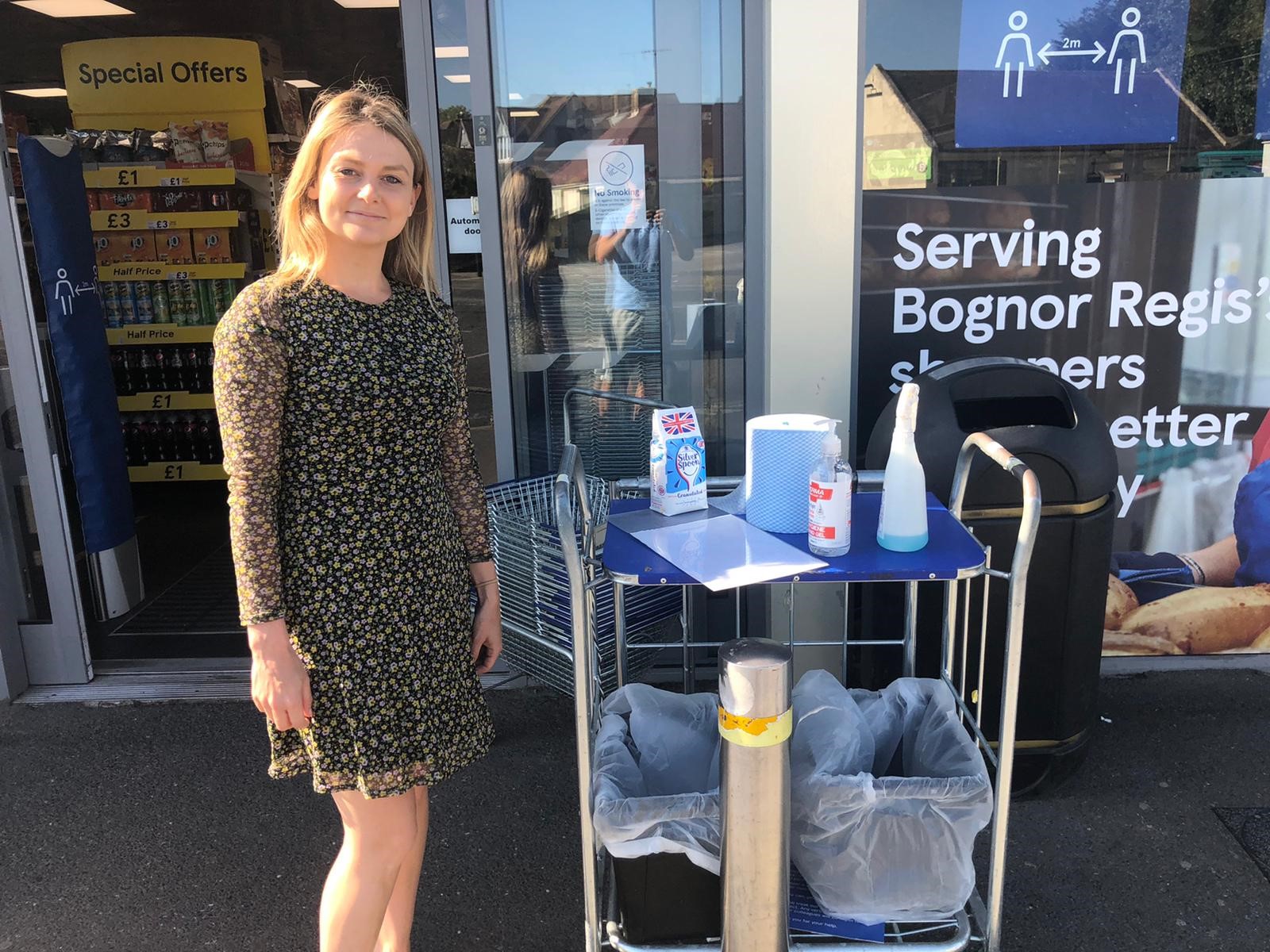
- Try to use wipes to clean down the surfaces you touch before use and discard the wipe immediately in an appropriate bin.
- If you can, wear disposable gloves whilst shopping.
- Avoid touching your face, especially while in a public place.
- Carry a hand sanitiser with you and use frequently, especially after handling products in the supermarket.
- Maintain social distancing as much as possible. Lots of shops now have floor markers indicating the 2m distance, so make sure to adhere to these.
- Minimise your trips to the shops if you can. Planning ahead with your meals will help with this. Write a list and stick to it.
- Try not to stockpile or impulse buy. Not only are things more likely to go off if you buy in bulk, but it also stops someone else being able to buy as well.
- Pack your own shopping, rather than let the cashier try to help.
- Use your card rather than pay with cash. The contactless card limit has been increased from £30 to £45 to enable more people to pay without touching pin pads.
- While self-checkout may reduce contact with others, there is a risk of infection through the touch screens.
- Some shops have introduced apps that allow you to scan and pay through your smart phone, so if you’re worried, it’s worth doing your research.
- Avoid peak times and busy periods. The added bonus of going at the end of the day is you may pick up some discounted bargains.
- Fresh produce can go off quickly. If your supermarket has run out of frozen food like fruits, vegetables or meats, remember you can buy fresh versions and freeze them yourself, doing so in an airtight bag or container. Write the current date on it so you’ll know when you froze them.
- Canned food is a good alternative for fresh food if it’s not available, plus it has a longer shelf life, reducing your shopping frequency. Just check the traffic light system for the nutrition value of food’s contents.
Safe food practises in the home
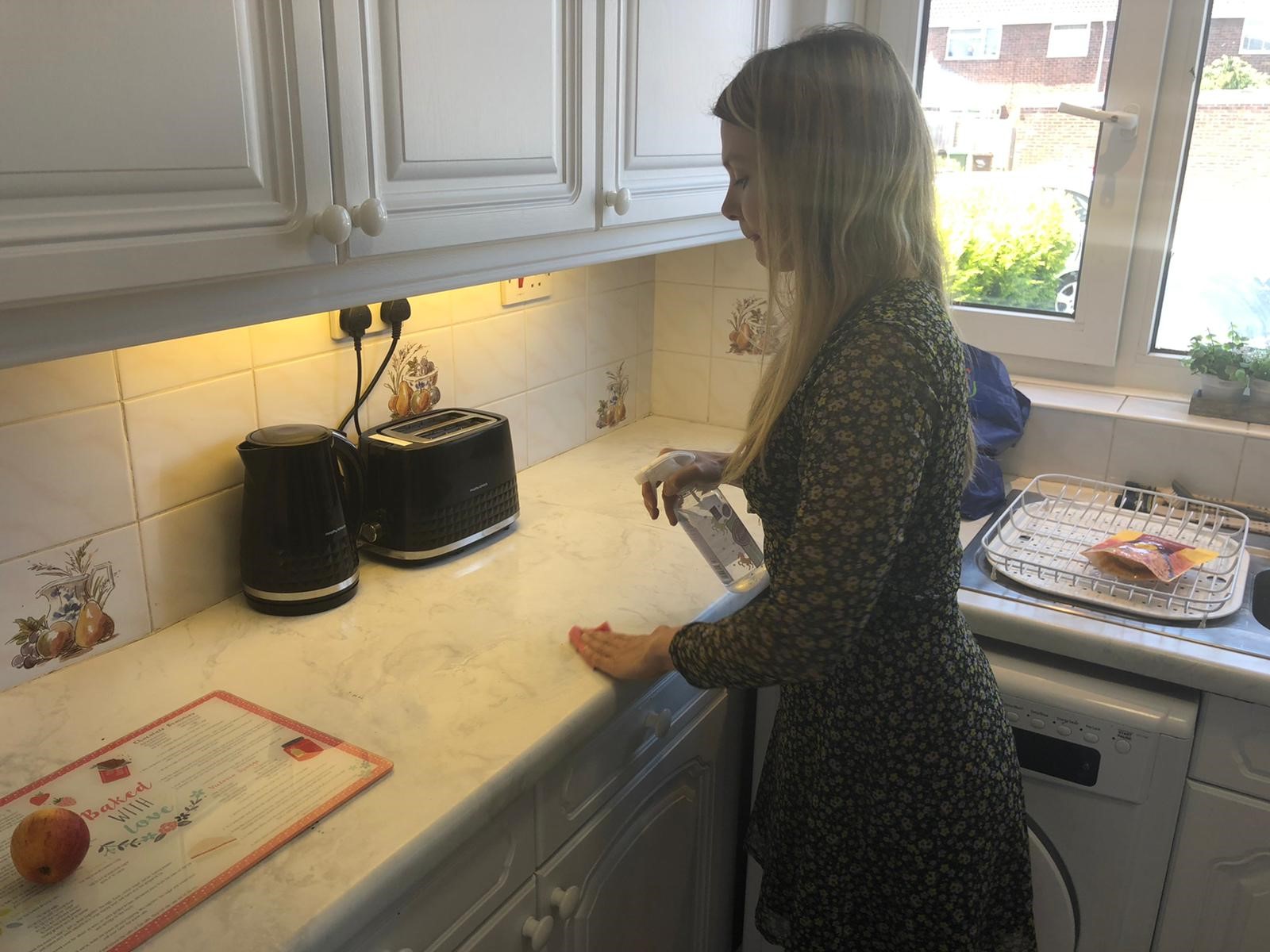
- As soon as you’ve got in from shopping, remember to wash your hands for at least 20 seconds.
- Non-perishable food can be left to sit out of the way for three days so any virus on it will die, but this may not always be convenient or practical. Use wipes or antibacterial spray on food packaging before you put it away.
- Wash loose fresh produce thoroughly under running water.
- If you can, order your food online, although slots can be limited as shops are reserving deliveries for elderly and most vulnerable, so be sensitive to this.
- If you’re struggling to secure an online delivery and don’t want to queue for supermarkets, explore local alternatives. Independent suppliers, market traders and farm shops are all expanding their services, and even ice cream vans have started carrying essentials. Visit Local Food Drops or We Deliver Local to see what’s on offer locally to you.
Nutrition for good health
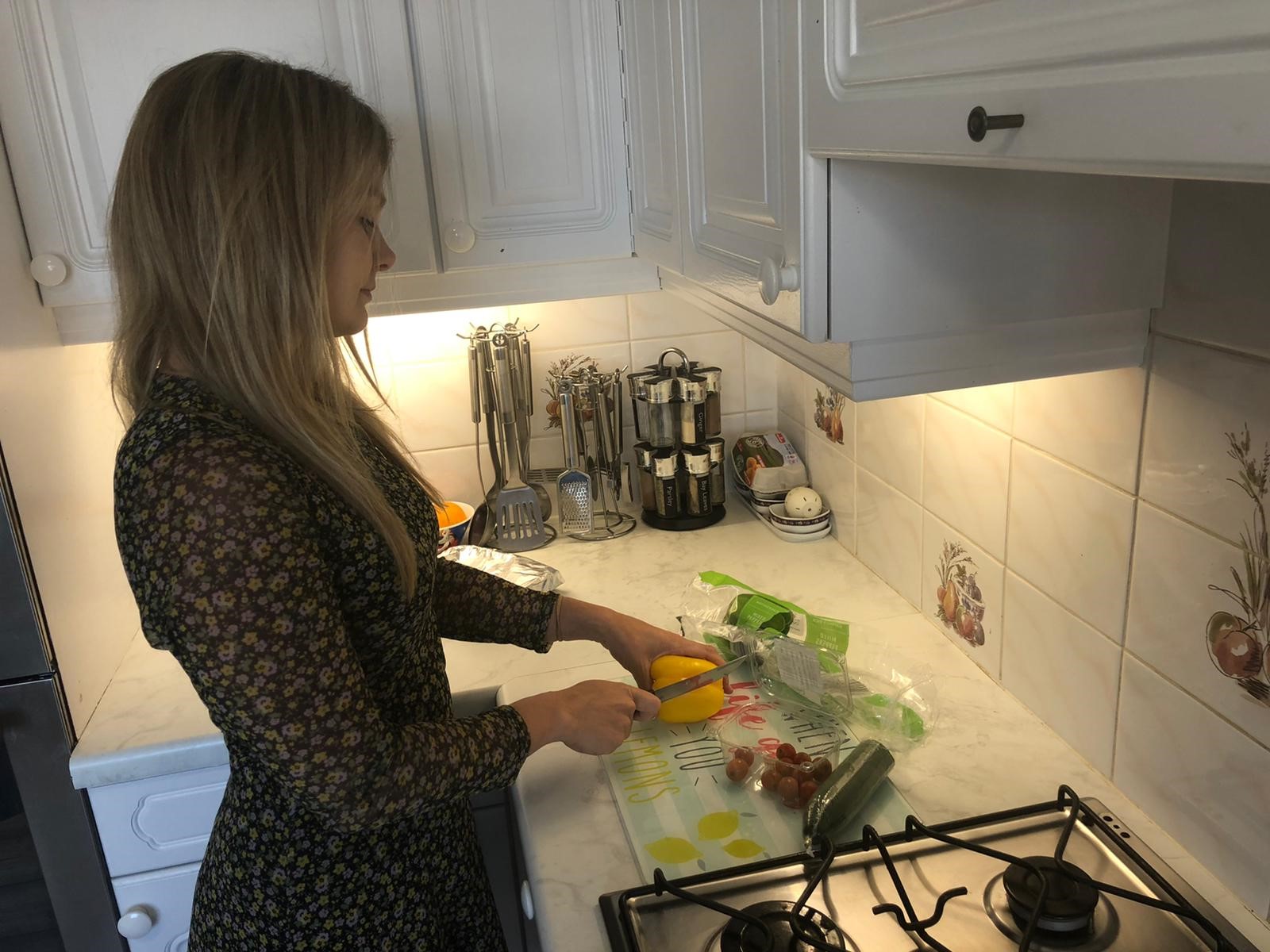
There isn’t any concrete evidence yet to link specific diet with reducing the likelihood of catching the virus or lowering the severity of how it may affect you. But we do know that a healthy lifestyle, such as eating a nutritious diet, getting adequate physical activity, sleeping well and managing our stress levels, will help to boost our immune system. And this can only be a good thing if we were to pick up any bugs, not just COVID-19.
We’re two months into lockdown now, and there’s no doubt it has thrown up some challenges with regards to maintaining healthy lifestyle habits. Limited time to go out and exercise on top of stress eating, boredom and being nearer to our kitchens and snack cupboard temptations can easily result in weight gain.
Tips for healthy eating at home
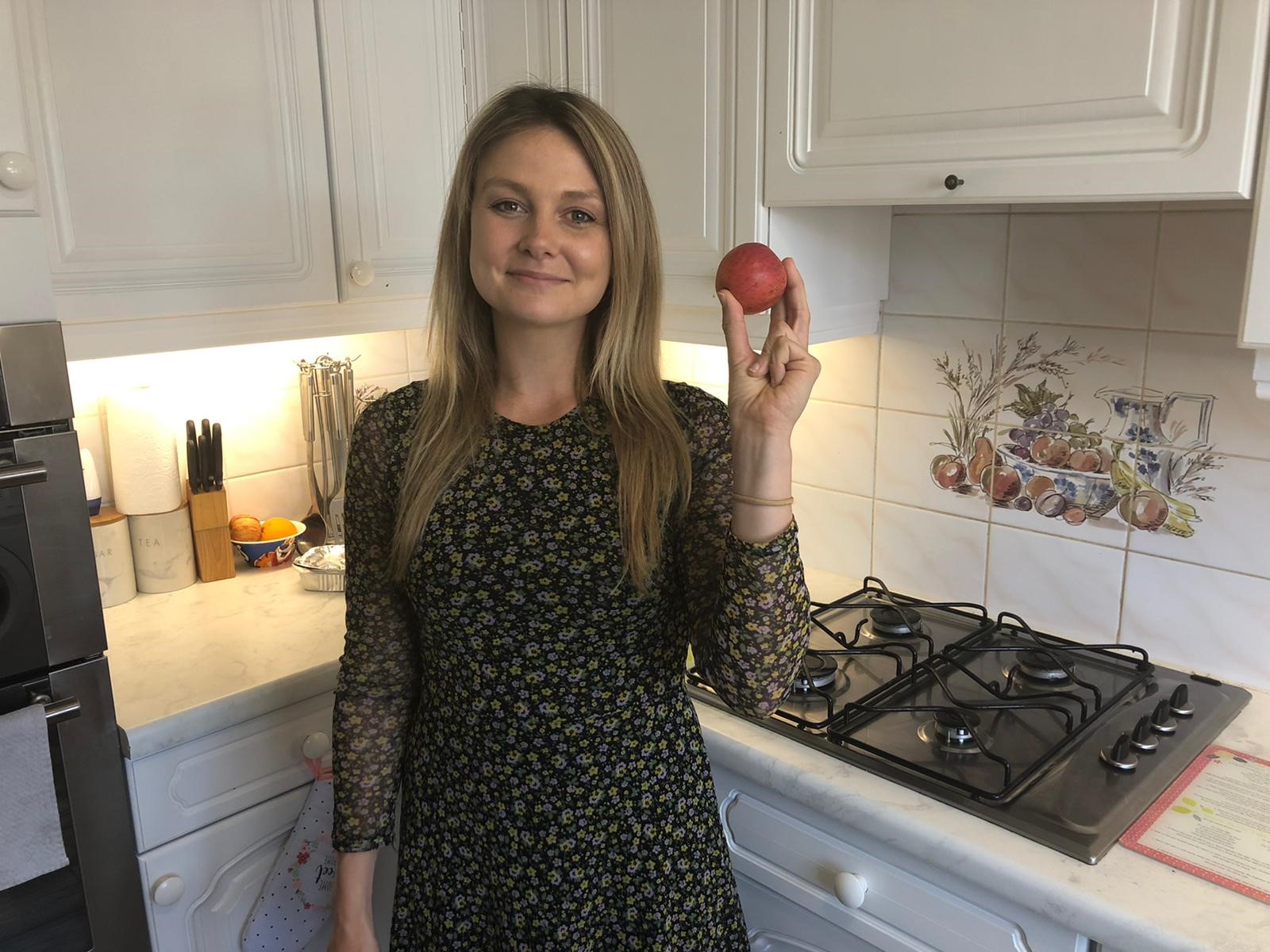
- Try to stick to structured mealtimes. Not only is routine good for our mental health, but it will also encourage good eating habits.
- It may not be that you’re eating the wrong food, but just eating too much of it. Portion control is your friend, so maybe consider using smaller plates.
- The Eat Well Plate is a great tool to help with a balanced diet. It shows what percentage of your meal should be fruit and veg, carbs, proteins, and dairy.
- You should still be aiming to get five pieces of fruit and veg in to your diet each day. If you are struggling to source fresh products at your supermarket then have a look at frozen or dried options. If you’re not a fan of fruit or veg, look for other ways to get your five-a-day, like adding a spoon of dried fruit to your morning porridge or make a smoothie with frozen berries.
- Having snacks in the house is half the problem, so if you don’t buy them, the temptation won’t be there. Or at least, try not to buy too many snacks.
- Eating should be a social activity, so if you’re isolating with others, why not try to eat at least one meal a day with others, not only for social interaction but also to maximise ingredients? Slow cookers are great for stretching out ingredients, and you can freeze what you’ve made as well.
- Use this spare time to dust off the recipe books and try out some new recipes.
- Getting stressed about what to make for each meal? Turn cooking into a family activity and get your kids involved. Teach them simple recipes and techniques.
- To avoid wastage, get creative with what ingredients you still have in the house, rather than having to go back to the shops. Websites like Tasty and SuperCook are great for suggesting recipes based on what you’ve got in the house.
Healthy drinking habits
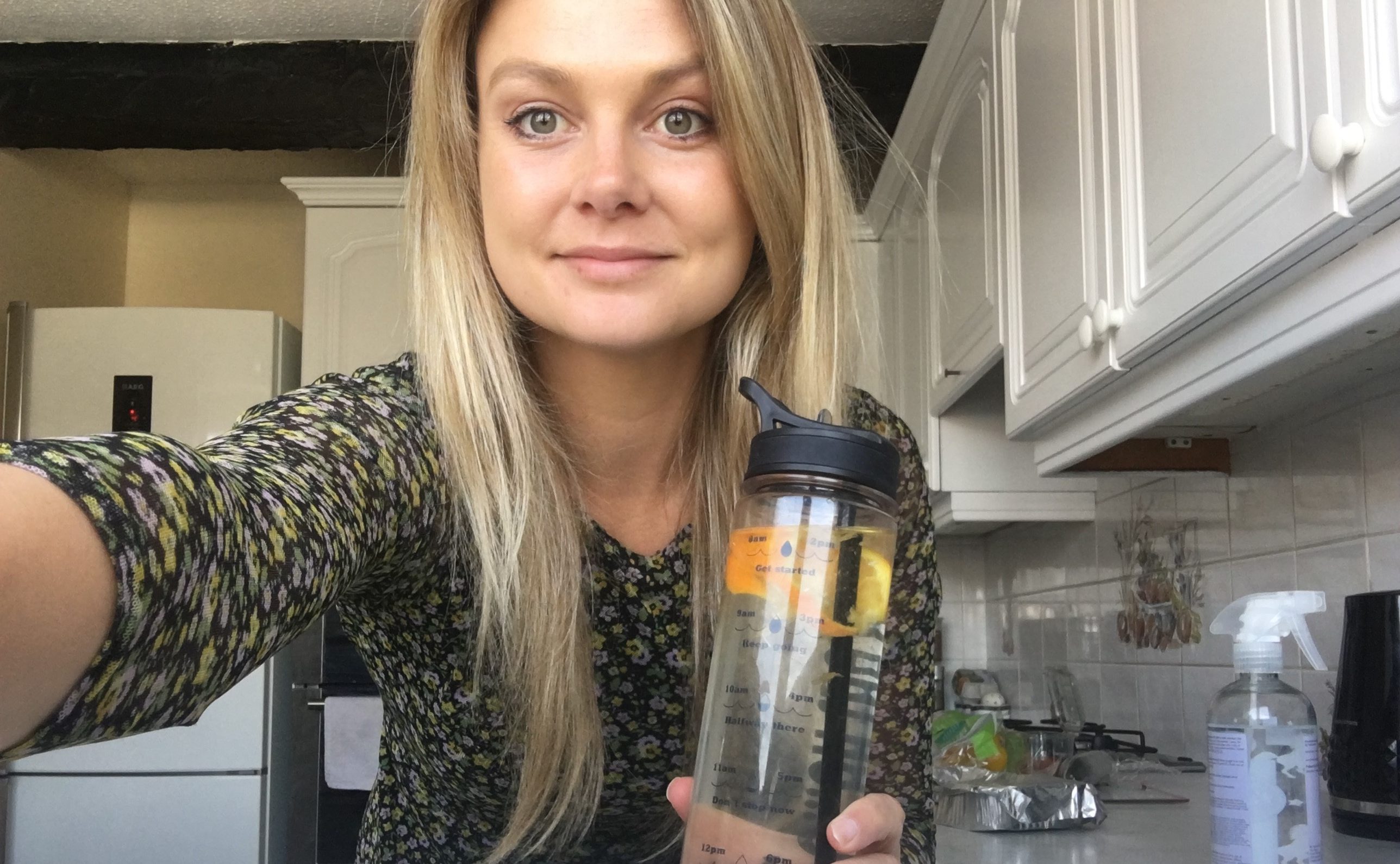
- Sometimes we mistake hunger for thirst. Next time you’re feeling peckish, try drinking a glass of water.
- Keeping yourself hydrated is so important. Not only are their proven health benefits of drinking lots of water, but if you were to become unwell with the coronavirus, staying hydrated is vital, as 50-60% of our body is made up of water.
- One way to increase your water intake is to always have a full glass or bottle in front of you, as you’re more likely to drink it if you can see it.
- If you don’t like the taste of water, try adding fruit (lemon or lime work really well) to add flavour.
- Tea and coffee are fine to drink as part of a balanced diet, but as they contain caffeine, try to drink them in moderation.
- Avoid drinking your calories with high sugary drinks. Always check the label and try to buy sugar-free where possible.
Staying safe while having takeaway
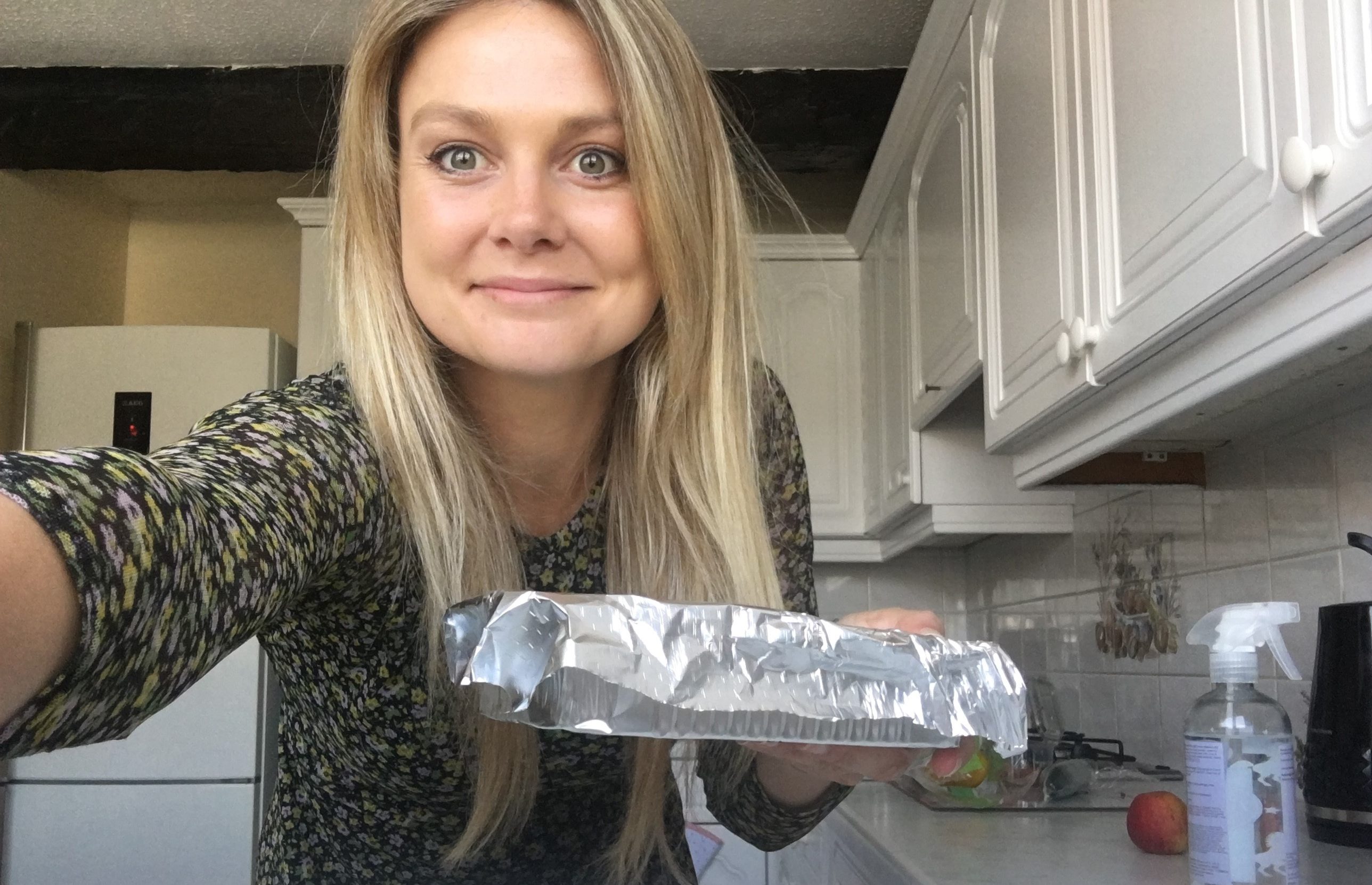
Let’s face it, we all deserve a treat at this time, so it’s okay to get a takeaway every now and then (alongside a healthy, balanced diet). The Food Standards Agency tells us the virus is not likely to be transmitted by the food itself, but more likely in coming into contact with the delivery driver.
Most takeaway places are already taking steps to combat this, but if they haven’t, you’re well within your right to ask them to leave the food outside in a porch or safe space to minimise contact. Try to pay online before your food arrives, again, to keep contact to a minimum.
The NHS Eat Well scheme has loads of great advice for making your takeaway more healthy, such as adding a portion of beans or mushy peas to fish and chips, or asking for extra vegetables on your pizza.
Once you have received your meal, get rid of the packaging it is delivered in immediately as the virus can remain on surfaces. Once you’ve transferred your meal to your plate, discard the packaging and wash your hands thoroughly. Make sure you recycle cardboard and plastic containers, as we still need to be doing our bit for the planet, even in lockdown.
Most importantly, enjoy your food!
